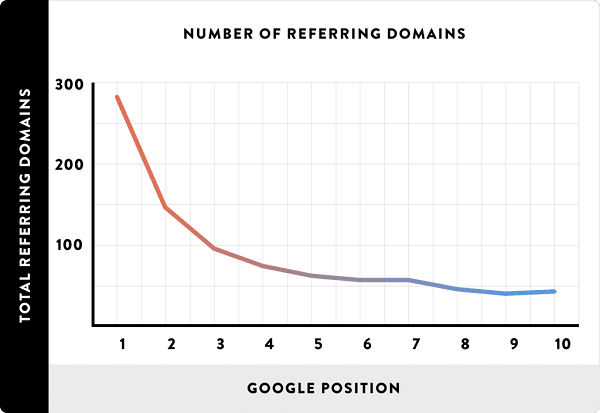In your personal life, you have a reputation.
We all do. We have something that we’re known for, that is how other people see us and describe us to others.
“This is Jeremiah, from Greensburg.”
“This is Jeremiah, he works in web design & marketing.”
“This is Jeremiah, the other Jeremiah’s friend. ”
And it’s always interesting to pay attention to how an individual describes you. The words he or she chooses to describe you show both how he knows you, as well as what the person who is meeting you cares about knowing.
Your friend who is making the introduction is trying to give you credibility in the eyes of the listener. He is appealing to something which is familiar and liked by the listener, in order to build trust between you. This credibility is vital to building rapport between the two of you.
For better or for worse, we are all known for something. And much of our efforts in our personal and professional lives are spent building credibility in the eyes of those around us.
And the same principle applies to your website.
You Want Your Business to Have Credibility
If you’re a small business owner, then you care very deeply about getting your business in front of someone who wants your service or product. That’s why you’ve spent money building a conversion-focused website which is a sales tool (not a business card), optimized for search engines through its site structure and keyword focus.
But is that enough?
Short answer: no.
Your site’s structure and keyword focus give Google a great idea of what services you provide, in what locations, and what searches might indicate an individual’s interest in your company.
It’s enough to give you a nice boost to your traffic, and to see an increase in the number of contact form submissions and phone calls through the website.
However, your properly SEO’d site and great keyword phrase doesn’t build your credibility in the eyes of Google. Google sees which service keywords you’re trying to rank for, but can’t tell if you’re actually qualified to provide the service you say you are.
Simply put, there’s no credibility.
Having only an optimized website is the equivalent of going into a sales meeting and telling a prospect what you do, but without showing him that other people will verify your expertise.
Your site visitors, pageviews, and leads will quickly plateau if that’s all the SEO work you put into your site.
So how do you prove your credibility to Google?

Ways to Improve Your Online Credibility
Google looks to see how credible your site is through a variety of ranking factors (customer reviews, length of time visitors spend on your site, how many pages each visitor views, etc.), but by far the biggest way to boost your website’s credibility is backlinks, read this page to learn how to do it.
.
Backlinks, also called inbound or incoming links, are links to your website from other websites. Business directories, news outlets, sister companies, and other websites are typical ways your website can earn a mention from other websites.
And why are backlinks the biggest way to boost your website’s credibility? Because they show Google that other individuals believe you’re worth mentioning.
And many sources corroborate this finding:
Biggest Ranking Factor
We are absolutely confident that links are the single biggest ranking factor.
–Source
Brian Dean, founder of Backlinko, wrote this: “Backlinks remain an extremely important Google ranking factor. We found the number of domains linking to a page correlated with rankings more than any other factor.”
Here is a chart of the results of the study:

As you can see, the top results in the search engine results pages (SERPs) had hundreds of backlinks compared to their lower-ranked counterparts.
Brian Dean also said, “Our data also shows that a site’s overall link authority (as measured by Ahrefs Domain Rating) strongly correlates with higher rankings.”
In another study, Moz, one of the first SEO blogs around, and the creators of a fantastic software, found in this study that backlinks were the #1 influence on Google algorithm when it came to ranking.
These private studies of SEO ranking factors were confirmed in early 2016 by Google itself, who released their top 3 ranking factors: links were #1.
We’ve heard it from reliable experts on SEO and search rankings, as well as from the #1 search engine in the world, Google.
But what does it mean to have good backlinks?
What Makes a Backlink Good?
Simply having backlinks isn’t going to help your search results rankings improve. Having quality backlinks from authoritative sites which actually help the user are going to help your rankings.
This means that not any backlink will do. Only a high-quality and genuine backlink gives you credibility.
It makes sense, if you think about it.
Google has informed the world of SEO that the end user’s experience (UX) is their end goal. They want the people searching on their platform to find the best possible answer to their questions–after all, that’s the only reason they use Google to begin with.
To that end, Google will both boost good website in the search results, and penalize websites which it views as spammy, malicious, or fraudulent. The end user doesn’t want to go to a poor website which doesn’t have any credibility, and so Google won’t show them that.
That’s why it’s important to have backlinks from quality sites.
So how do you get quality backlinks?
Have a site worth linking to.

How to Build Backlinks
Now before you close the browser thinking “Please, give me some more cliche advice,” take one minute. This is actually the answer.
Moz calls this the “‘no one likes to link to a crummy site’ phenomenon”.
If you’re a plumber in Greensburg, Pennsylvania for instance, and you have website that looks like one of these terrible websites, then you probably won’t get backlinks from anybody.
It’s important that your site has an SEO-friendly structure, is easy to navigate, has the exact keywords which people are using to search, and information which someone needing your services might also be interested in.
This is where content marketing comes in.
One of the best ways to generate backlinks from multiple sites is to create a piece of content which is so good, that viewers simply must link to it.
An example:
HubSpot, the marketing and sales platform, produces tons of authoritative guides to every facet of sales and marketing, and with good reason. Because the articles, blog posts, and web pages they’re releasing have incredible, unique content, they receive tons of traffic and backlinks from others who are quoting or citing them in an article.
Their marketing statistics page, for instance, comes up first in the Google search results, and with good reason: it’s simply the best out there.
At over 5,500 words and with every conceivable marketing statistic on the planet, from Instagram, to blogging, to Facebook, to SEO, to direct mail, and more, there simply isn’t an article which is more worthy of a) gathering backlinks, and b) ranking in spot #1.
You can do this for your website in this way:
- Find a keyword that people are searching for that is related to your business
If you’re a painter, then write an article about “how to clean a paint brush,” or some other helpful topic. - Write an article that is worth reading.
Provide pictures, describe every possible way to clean a paint brush, including every type of paint (oil-based, latex, etc.), include videos of you doing it, etc. Write the best post on that topic that exists on the internet. - Rank high in the search results.
If you rank high on page 1 in the search results, and you’ve provided a resource which is helpful to the end user, then you’re going to garner backlinks.
The goal is to be both findable and helpful. If your website is both, then backlinks will follow.
Once you have this excellent and unique content, there are a variety of creative ways to actively generate backlinks.
Here are just a few:
- Giving Testimonials (other websites love to share testimonials about their products / services)
- Create a Scholarship (who wouldn’t share this and link to it?)
- Un-linked Mentions (use software to find places that mention you without linking to you)
Source: They’re all from Backlinko. His entire business is built around generating backlinks, so I can’t think of a backlink-generating method he doesn’t mention.
When Backlinking is Badlinking
While content marketing is a great way to get backlinks from other sites, it can be difficult. Writing a comprehensive guide to any topic takes a great deal of time and effort.
Because of that, there are many unscrupulous individuals who use deceptive “black-hat practices” (as opposed to above-board “white-hat” practices) in order to rank highly in search engines. These individuals break Google’s Webmaster Quality Guidelines in a variety of ways in order to game the system.
Some of these practices include:
Keyword Stuffing
Keyword stuffing is putting the keyword you’re trying to rank for 10,000 times throughout the page, hoping you’ll rank highly for it.
e.g. What not to write: “Plumbers near Greensburg, PA is a company of plumbers near Greensburg, PA which provides services that plumbers near Greensburg, PA are known for providing to residents in need of plumbers near Greensburg, PA.” Not only does Google dislike it – users won’t either.
Duplicate Content
Duplicate content is using verbatim content from other sites, or even content from other places on your own site)
Plagiarizing or “scraping” content is frowned upon. Each page on your website should be unique.
Buying Backlinks
Buying backlinks (instead of earning backlinks with your great content) is frowned upon, as is having backlinks from low-quality, spammy, or sites which use black-hat SEO practices. Having these links can negatively impact you.
Google also frowns upon buying links, link exchanges without context, and any pages which list tons of links.
While it might seem enticing to use one of these tactics to get some backlinks, doing so can actually harm your rankings more than they help you.
Always go for quality over quantity.
Parting Thoughts
So, in conclusion, there are a few thoughts to take away from this:
- Website credibility is just as important as having a good website
- Backlinks are the best way to build website credibility
- Providing findable and helpful content is a sure way to build backlinks
- Avoid bad linking practices
While updates to Google’s search algorithms are common, backlinks aren’t going anywhere. They continue to remain high on Google’s list of ranking factors, and with good reason.
They’re hard to build, so if you have a lot of them, you must be worth looking at.
In the Future…
“Linkless” Backlinks are coming to an internet near you.
What this means is that getting more mentions online (even without a backlink) will be an important ranking factor as well (but still not more important than backlinks).



One Comment